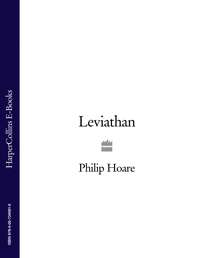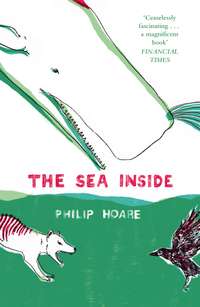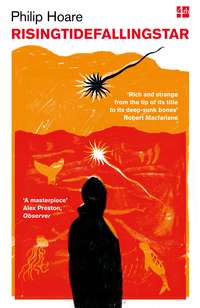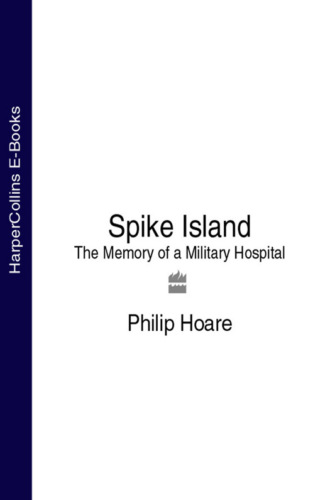
Полная версия
Spike Island: The Memory of a Military Hospital
One dinnertime I ran down to the school gate to see my father arrive in the big old family car with my beaming little sister, her brown hair in bunches, not yet old enough for school, jumping excitedly up and down on the passenger seat. We drove home to see our new baby sister, pink and bawling in crocheted wool and carry cot by my mother’s bedroom window. She was as blonde as my elder sister was dark; they were a perfect pair, and I loved them and they loved me. The world seemed as safe and secure as our new baby swaddled in her cot, her tiny fingers clasping the wool like soft pink bird’s talons. I read the Beano on my father’s knee on dark winter evenings and he cut my finger- and toenails.
The house was yellow and warm, but one day I came home from school to find my mother airing clothes on a wooden clothes horse in front of the coal fire, upset by the news she had just heard on our old valve radio (with its illuminated dial and place names as strange as the lunchtime shipping forecast). Many children had died after a mountain of coal had fallen on their school in Wales. Later, on TV, there would be grainy black and white images of a destroyed building in a mining village, and men in coats picking over what looked like a bomb site. In my mind’s eye I saw the black soot engulfing the high ceilings of my classroom, pouring in through the big wide window, silently crashing and crushing.*
But mostly life and death carried on over my pudding-basin-haircut head. I went to school as the sun rose at one end of the street, and went to bed as it set at the other. I saw my first streak of lightning make an electrified crack in the sky, and ran home for cover. I played soldiers and feared hospitals, and once visited the dentist’s in an Edwardian house opposite our school to have a tooth pulled out. In grey shorts, another green home-knitted jumper, and a permanent scab on my knees, I saw the brass plate at the entrance, the venetian blinds at the windows, the unadorned front garden: all too neat, too clean, too white to be a home. I panicked as the black rubber mask descended, halo’d by the yellowy examination light that shone on the steel instruments laid out in a tray at my shoulder. The nauseous smell of the rubber was pressed down on my memory with the hiss of the gas as it was clamped over my small face, the dentist’s white coat and stubble and glasses above. The next thing I remember was staggering out of the porch, spitting gobs of gelatinous blood like leeches, reeling on to the front lawn and lying there, the world turning above me as I experienced my first intoxication, mixed with medically-induced pain from a suburban house of torture.
If these were the worst things in my life, the rest of it must have been pretty good. But then everything changed.
It was a Saturday morning. I remember coming downstairs and looking over the banisters – another aerial view, as if I were removed from these proceedings in my life, these out-of-body experiences – and watching my parents moving about in the front room. They were not doing the housework; they were not moving in the way parents should move.
My brother had been injured in a car crash. He was twenty-three years old. After a week in a coma, my mother and his young wife staying at the hospital to be at his bedside, Andrew died.
The news permeated the house like an invisible gas. I remember being told about it while standing by the kitchen door; I knew it had happened, but I must have appeared as if I didn’t. Crouching down to my eleven-year-old level, my brother explained in slow, clear tones that Andrew was dead. ‘I know’, I said, and ran out, down to the bottom of the garden, where the snakes hid in the privet hedge.
Everything seemed thrown in the air, as though the atmosphere itself had buckled and warped. Nothing was right; everything was wrong. It was almost exhilarating, as though you were moving backwards at speed, removed from the events that were taking place, that you knew you were witnessing and yet could not feel.
Later, I tried to access the emotion I should have felt. I tried to remember Andrew, with his thick, dark spiky hair and round head, shaped like mine, and which my parents said was as hard as a bullet. I thought of his kind face, his stocky body, his sports shirt, the tinned steak and kidney puddings he sold from the back of his van, even though he was a vegetarian. But all I could remember was the day he took my sister up to the corner shop and filled her dolls’ pram full of sweets for her birthday. For that act alone he was a hero. He became the lost connexion that would have made the rest of my life happy.
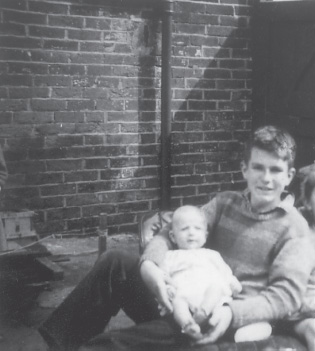
In the back garden of Akaba, sitting against a brick wall, my dead brother cradles me proudly in his strong arms, my plump little baby’s fingers in his. He grins at Dad’s camera, his arms full of me: pale and pudgy, I look straight ahead, eyes unfocused, nonplussed, still vaguely embryonic, as though I’d only just emerged into the world. Over in our new suburban home, with its smaller rooms and without my brother’s wide arms, I would grow like a goldfish grows to the size of its bowl; knees bent as I crouched by the gas fire in grey wool dressing gown tied with a twirly cord, chilblains on my feet in winter, burning ginger biscuits in front of the ash-white ceramic that glowed luminous red with internal heat as the wind whistled up the chimney.
The shadow of loss lay over us, but I can only remember the funeral, which I insisted on attending, dressing myself and running round to Andrew’s house to join the cortège. Shortly afterwards, my eldest brother – still only in his twenties – separated from his wife and came with his two young daughters to live with us. It became crowded in our three-bedroom semi. My mother had to cook for two families: big aluminium saucepans held pounds of peeled potatoes, sitting in their starchy water ready to be boiled like blind white fish. Life was as normal as my parents could make it, but I was a different boy.
From Lance’s Hill in Bitterne, Sholing’s neighbouring suburb, you can look across the dual carriageway to an opposing rise in the land and the tree-surrounded site of St Mary’s College. Its white stucco mansion, with bay windows like the bows of a man-o’-war, is the last great house of the estates which once studded the banks of Southampton Water. Like many of its counterparts, the house reacted to the social changes of the twentieth century by becoming an institution, a seminary for Catholic monks expelled from France; they added a slate mansard roof, giving the building the air of a Normandy chateau. In 1922, a new order, the De la Mennais brothers, took over, adding a utilitarian four-storey brick block to accommodate their school, with a chapel between marking the religious transition from the house in which they lived to the secular block in which they worked.
I’d won a scholarship to St Mary’s in my last year at primary school. All three of my brothers had been there, and in the wake of Andrew’s loss, a sense of tradition, if not duty, settled on me. After a summer of freedom came the day in September when my brother, who wore gold crushed velvet flares and had met his girlfriend at the Isle of Wight festival, drove me in his pre-war Austin, complete with running boards, to my new school.
At the end of a long gravel drive shouldered by rhododendron was the playground, a desert of grey tarmac surrounded by high chain-link fencing. Inside this giant cage was a teeming horde in a strange new uniform of brown and gold. With his hand on my shoulder, assuming his appointed role just as I must assume mine, my brother introduced me to the deputy headmaster. Dressed in a cassock edged and elbowed in black leather, the monk regarded me through his steel-rimmed spectacles: he had the raw, overshaved face of the early-rising religious, Brylcreemed hair and a wide toothy grin that belied his school nickname – ‘Crippen’. I was left in the playground, waiting for the whistle, abandoned to my fate. It was a recurring nightmare, of being lost in some unknown place, not knowing how to get home; it was the same sense of abandonment I felt when, lying in my top bunk in the bedroom I now shared with my two grown-up brothers, I heard in my head ‘The Green, Green Grass of Home’, and realised for the first time, with a sudden and sharp pain, the reality of loss.
Marshalled into lines and into the building that was to be home for half my waking life, we filed into long glazed corridors of creaking floorboards smelling of polish and chalk and ink and leather. At the end was the hallway to the chapel, and as we trooped down to Mass we would catch sight of the dark interior of the old house beyond. To cross this point was forbidden. Occasionally, a monk would pass through the connecting door, allowing a glimpse of a stark domesticity. I imagined the monks’ bedrooms to be bare, with iron bedsteads, crucifixes and bedside tracts – whereas the prosaic truth was probably the deputy headmaster with his feet up, reading Sporting Life over a glass of whisky.
Crippen was said to have tailor-made leather straps hanging on the wall of his office, each whimsically named after his ‘girlfriends’ and ready to punish any transgression. He was the most worldly in an eccentric staffroom of characters easily baited by the ingenious cruelty of schoolboys: the shell-shocked language teacher whom we’d tease by imitating exploding bombs; another well-meaning brother who taught maths and whose fury was kept under control only by his undoubted devotion; and a physics master who, it was claimed, had helped invent the aerosol. He may have been a genius, but we could hardly care less. It was our duty, like prisoners of war, to taunt a chalky-cassocked and leather-patched cast who would not have been out of place in Nicholas Nickleby. The sense of them and us, of prisoners and wardens, was emphasised by our uniforms and their cassocks. The wooded grounds provided cover for our transgressions, a place to smoke illicit cigarettes and conduct other experiments, not all of them the kind that even the deputy’s girlfriends could dissuade.
In front of the school buildings, once gracious but now shaggy lawns sloped down to a series of turf banks dividing the school from its playing fields below. We were barred from the manicured grass in front of the White House itself, under which it was rumoured tunnels ran. One came out under the library; others we could only speculate about in our prisoner-of-war fantasies. As my best friend, Peter, and I trespassed in the cellars, he told me – and I had no reason to doubt him – that one tunnel led far out under the playing fields, down and down until it reached the distant shore of Netley.
Конец ознакомительного фрагмента.
Текст предоставлен ООО «ЛитРес».
Прочитайте эту книгу целиком, купив полную легальную версию на ЛитРес.
Безопасно оплатить книгу можно банковской картой Visa, MasterCard, Maestro, со счета мобильного телефона, с платежного терминала, в салоне МТС или Связной, через PayPal, WebMoney, Яндекс.Деньги, QIWI Кошелек, бонусными картами или другим удобным Вам способом.


